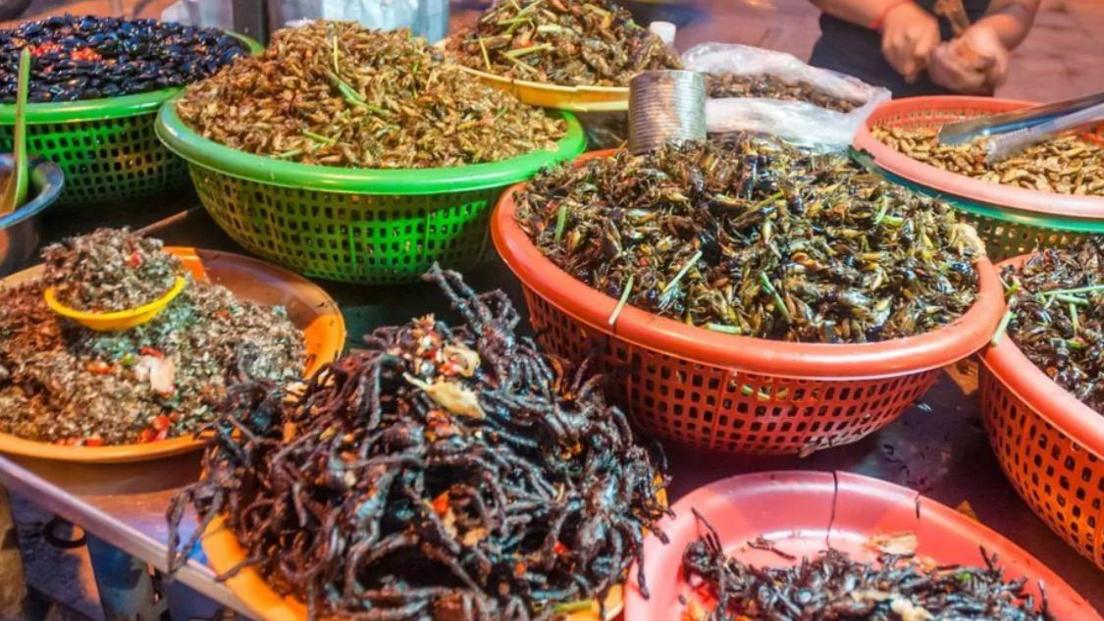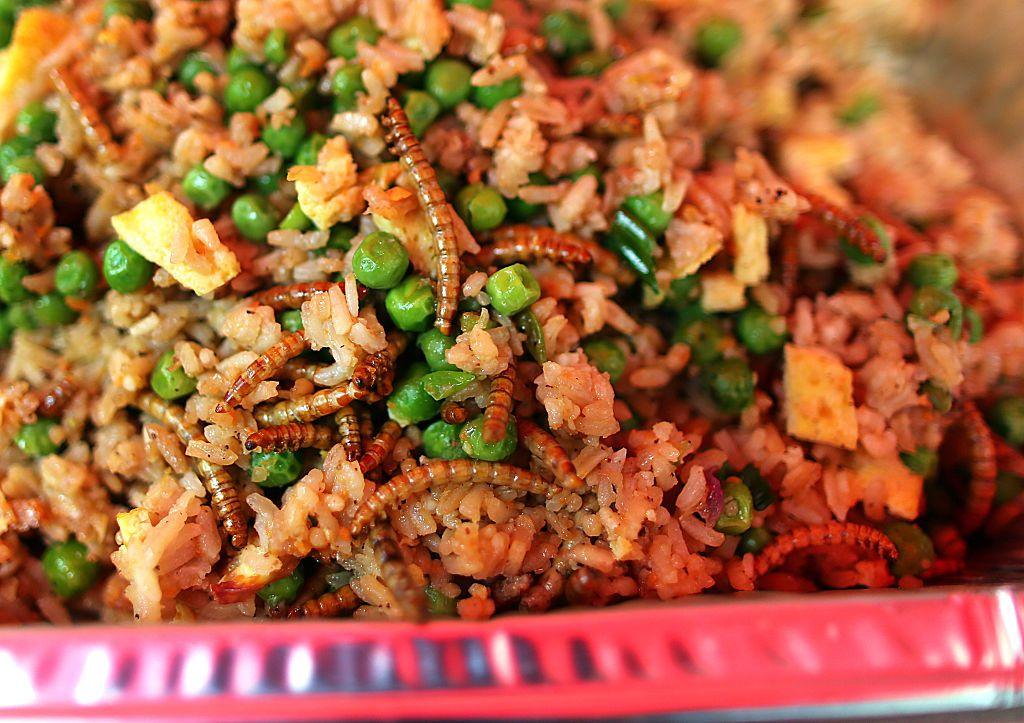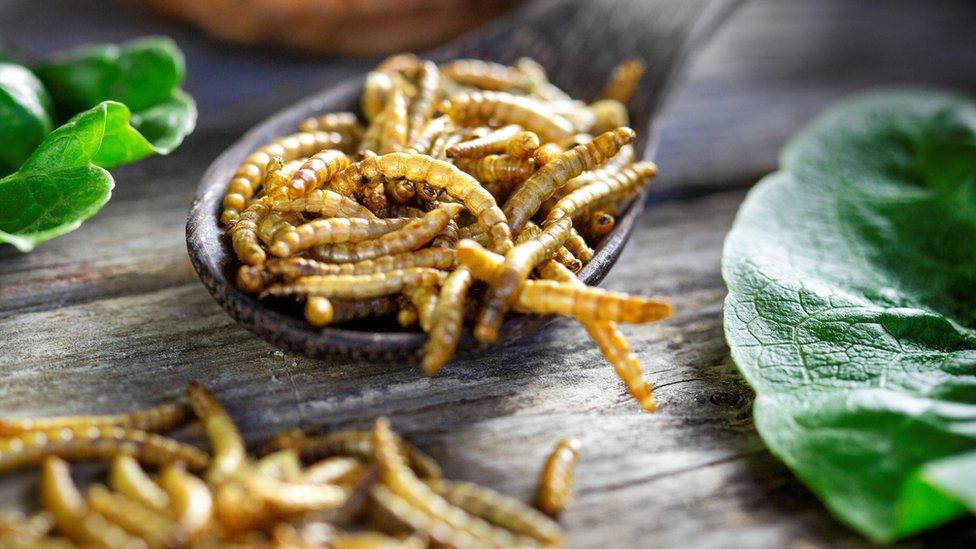Would you eat insects for your dinner?

Would you snack on these treats?
- Published
Scientists say the 'disgust factor' is the big barrier to us all starting to munch on insects.
Research into how to make people happier to eat insect-based foods found that people are put off eating them because of how they think they would look and taste.
Bugs like crickets, locusts and mealworms are a great source of protein and, experts argue, are better for the planet than traditional meats such as beef and chicken.
But would you try insect-based food? We want to know what you think. Have your say in our vote and join in with the comments below!
Crawl over to more like this
Bugs: Why are they are so important to our environment?
- Published21 July 2019
Should we be eating more insects? Have your say!
- Published6 June 2022
Eating grasshoppers could be 'as healthy as orange juice'
- Published15 July 2019
What do insects taste like?
Eating insects: Should we be eating more creepy crawlies?
Insects come in a variety of tastes and textures depending on how they are cooked, but many describe them as having a similar flavour to chicken, shrimp or crab.
Deep-fried scorpion has been compared to crab, while tarantula is said to taste like a mixture of chicken and cod.
Silkworms are slightly nutty with a crunchy outside and a texture like mashed potato on the inside.
What did the report say?
Insects are enjoyed by millions of people in Africa and Asia as part of their everyday diet.
They are packed full of good nutrients and lots of species have less than 5g of fat per serving.
But an online study found only 13% of people asked said they would be willing to regularly eat them.
Dr Lauren McGale from Edge Hill University was in charge of the study, and said some insect proteins are "cheaper and easier to farm, often lower in fat and have a lower environmental impact than traditional livestock".
The study's findings are being presented at the European Congress on Obesity (ECO) in Venice, Italy.
Why eating insects could actually be a good idea
The research suggested that more people would be willing to try insect-based foods if they had been ground up into a powder and added to things like sauces and flour.
Ground-up crickets and locusts are already added to some foods outside of the UK.
Experts say that entomophagy - which means eating insects - could help to fight world hunger and reduce pollution.
The world's population is growing, so we need to produce more food to feed everyone - and there are lots of insects to go around.

Would you like flies with that?
Farmed animals traditionally need a lot of space, so compared to producing meat, bugs don't take up much land, water or feed.
Not only that, but unlike cattle, insect farming produces fewer greenhouse gases.
It's important to remember, though, that not all bugs and insects are edible.
So you should always check before you bite!
- Published10 January 2019

- Published29 August 2022

- Published14 June 2019

